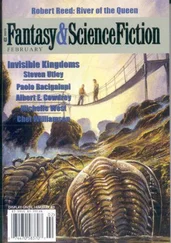“But Jo, did she leave, or was she kicked out?”
Rhonda laughed. “A little of both.”
“How so?”
“Jo was all for planned motherhood. That didn’t sit too well with the younger girls. Every single one of them wants to be the Virgin Mary, even if they’re fourteen. Especially if they’re fourteen. And then when Jo-well, I don’t need to talk about that.”
“About what?”
“Oh, there’s all kinds of rumors. Nobody needs to tell you how people talk.”
Pax sat back, his face burning as if he’d been slapped. Nobody forgets anything in your hometown, he thought. Ten years wasn’t enough. Twenty. He’d die an old man and they’d still say, You heard why his daddy ran him out of town, didn’t you?
Rhonda leaned over and looked between the seats at him, raising her eyebrows. “Paxton, you’re a grown man now. You know how small-minded people can be. Jo Lynn never was shy about sharing her opinion, and what’s more, she was ready to do more than just talk about it-she was going to take action. A lot of the sisters, especially the young ones-well, they thought she was the devil herself.”
Roberts Road ended at the highway, and Everett turned the car south, away from town. A half mile after the south gate, one of the boundaries during the quarantine, he turned off onto a newly paved road that wound up into the hills. When Pax was a kid there’d been nothing out here but trees and scrub brush.
Near the top of the hill the driveway was blocked by a black iron gate set into a high stone wall. Everett stopped and spoke into an intercom set on a post a few feet from the gate. “Aunt Rhonda’s here,” the chub boy said.
“What’s with the high security, Aunt Rhonda?” Pax said. His tone was light, but the fortress set dressing had put him on edge.
“Can’t be too careful, hon,” Rhonda said.
The gate swung open. Everett drove up the hill and around a curve, where the drive ended in front of a one-story brick building like an elementary school. White cement columns supported a broad porch and entranceway. The bottoms of the columns were smudged with red clay, but otherwise the place looked almost brand-new.
They got out of the car, and Everett retrieved the Styrofoam cooler from the Cadillac’s trunk. Pax knew there’d come a point when he’d have to ask Aunt Rhonda what she was going to do with those vials-and then all this polite chitchat would be over.
A charlie man in a brown security uniform came out of the building to meet them. He was in his forties, looking more fat than muscular. His hairline had retreated to high ground. “How you doing today, Aunt Rhonda?” he said.
“Just fine, Barron. This is Paxton Martin, the Reverend Martin’s boy.”
They shook hands and Barron said, “Welcome to the Home.”
The guard led them up the ramps to the building and opened the door for them. The foyer was tiled in pale green slate, the air glowing with sunlight pouring through a row of high windows. A man older and more immense than Pax’s father napped on a huge, sturdy couch.
“We have thirteen men living here now,” Rhonda said. “We take care of them because their families just can’t. You’ve seen how hard it is. Come on, I’ll show you around the place.”
Rhonda led Pax toward a set of double doors. Barron started to follow, but at a look from Rhonda he stopped at the edge of the lobby. Everett had already disappeared in the other direction, carrying the cooler.
Rhonda pressed a button on the wall, and the doors glided open to reveal a small space before another set of doors. She gestured Pax inside, and when the doors closed behind him, a vent in the ceiling jetted warm air at them. Five seconds later the next set of doors swung open. Pax thought, Air lock?
The area beyond was a hallway and a row of serious-looking doors. She opened the first of them and showed him an empty apartment: bedroom, sitting room, bathroom, and kitchenette, all laid out wide for charlie bodies. The tubs and toilets were enormous.
“You certainly seem to be well equipped,” Pax said. “I suppose that was you who set my father up with that big new toilet?”
“Hon, fixing up that bathroom was the least we could do. He didn’t want to come live here at the Home, but there are certain needs for people our size. Our old houses just aren’t built for our new bodies.” She laughed and patted one of her big hips.
She took him to the next apartment. A man sat propped up in a queen-sized hospital bed, watching a game show on a huge flat-screen TV. The room seemed to be at least partly furnished with his own belongings: homemade quilts, lamps that didn’t match, picture frames and knickknacks on the shelves. The man watched the screen intently, his mouth moving as if he was chewing on the inside of his cheek. His exposed skin was splotched with a white substance like dried sunblock.
“How you doing today, Elwyn?” Aunt Rhonda said, raising her voice over the sound of the TV. Elwyn’s jaw hung slack for a moment, and then he resumed his chewing. He never looked away from the screen.
“Every room has a big-screen TV and five hundred satellite channels,” Rhonda said. “Our boys like the TV.”
She showed him two more rooms. Both occupants were about the age of Pax’s father, and they looked much more alert than Elwyn. The men made small talk, and seemed happy enough to see Rhonda. Both were patched by white ointment-jalopies primed for a new paint job.
Rhonda said, “We’ve got three women who do all the cooking down at a kitchen I set up downtown, and we bring it in fresh every day. Nothing fancy-most of our men like their food home-style. We go through five pans of cornbread every meal.” She glanced up at Pax. “So how’s your father eating these days?”
“I don’t know for sure, but I think it’s kind of, uh, hit-and-miss.”
She nodded understandingly. She was trying to score points, and she knew that he knew it.
“Who’s paying for all this?” he asked.
“The whole clade,” Rhonda said. “Every charlie pitches in.”
“Really?”
“Oh, sometimes family members donate, the skips or people from other clades whose daddy starts producing. But mostly it comes from our own people. That’s because we all know that we have to take care of our own. The blanks won’t help; the argos won’t help. And we aren’t getting a thing from the government.” She patted Paxton to point him back toward the double doors. She kept touching him, Pax noticed, but hadn’t touched any of the residents. In fact, she hadn’t gotten within five feet of them.
“Deke told me my father was dry,” Pax said.
“Not completely,” Rhonda said. “We checked on him every so often, but he wasn’t producing more than a trickle, not like the other men his age.”
“Why’s that?”
“Well that’s an interesting question, isn’t it? Oh, hon, nobody knows for sure how all this is supposed to work-it’s not like there’s a lot of medical history on our people! Some of our older men are as regular as, well, it just comes flowing out of them. But your dad, he was like a rusty faucet. Dribs and drabs.”
“Until yesterday.”
She patted his arm. “That’s right. Isn’t that something?”
He smiled, feeling nervous. “Those vials you took from my father. Where’d Everett take them?”
“Why, down to the freezer,” she said, as if that were obvious.
Pax rubbed at the back of his neck. “Okay, and then what?”
Rhonda didn’t answer. She waited until the air had washed over them again and they were out into the lobby, and then she said, “Everett told me he found you laying in the grass at your father’s, waving your arms.”
Paxton felt his face heat. “All I did was get some on me. That stuff hit me like a Mack truck.”
Читать дальше









